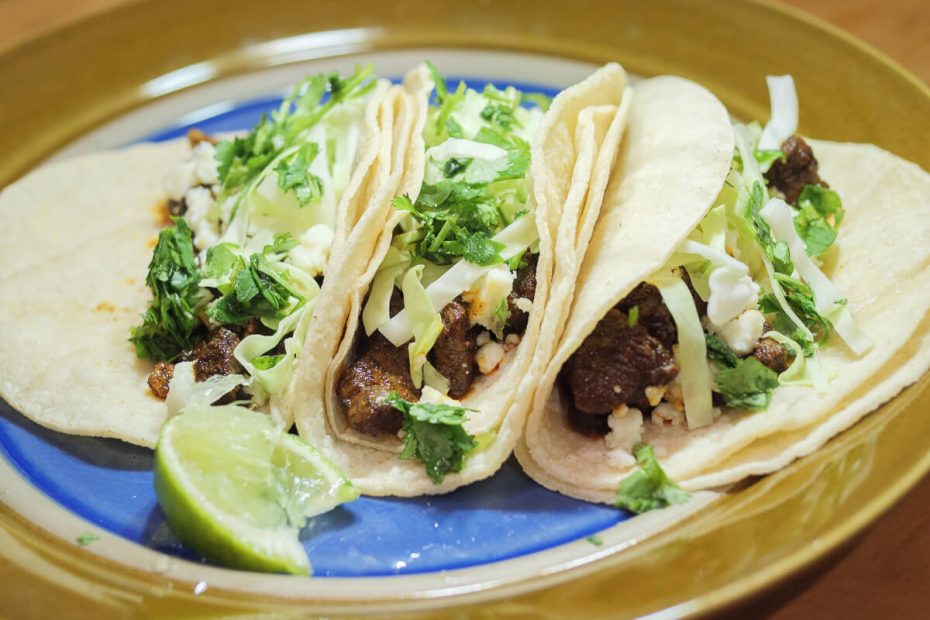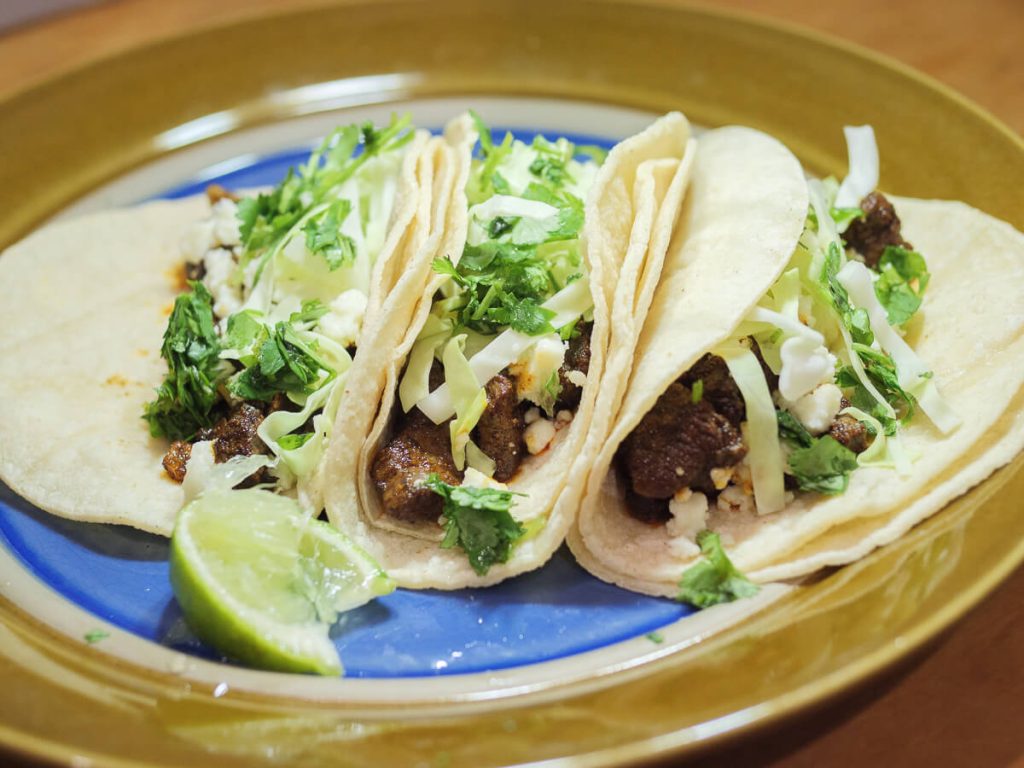
Taco Tuesday is practically a holiday. You’ll notice that no day of the week starts with a ‘G’, and that’s because there are better things to do with your meat than grind it.
There are several good reasons to keep your meat to yourself instead of sending it to a processor to be ground. First, you don’t need to pay someone else a dollar per pound to grind and package it. Plus, they’re going pressure you to add a bunch of pig fat to it, which kinda ruins the idea of eating wild game. Instead of making ground meat from your game, you should use that meat for tacos.
(And yes, I know there are many high-quality game processors out there, and I’m glad that when I don’t have time or skill to manage the butchering they are there to help. They certainly make hunting more approachable.)
Shanks, Don’t Mind If I Do
The meat I’m using in this recipe came from the shanks on a mule deer. It’s that lower leg meat that is inherently tough. It can be like chewing leather if you just try to grill it. This meat normally takes a slow cooker or a sous vide cooker to make it tender. That’s why most people put it in the “grind pile.”
But, with some salt and a sharp knife, shank meat is a great choice for Tuesday night.
My favorite thing about this recipe is that all you really need is the meat and the taco spices. You could skip everything else and this is tasty meat. Cook it at home on Tuesdays, or in camp after elk hunting all day and it’ll be a hit. The salty meat is packed with flavor and will recharge your electrolytes. Tucked in tortillas is a nice way to eat it, but it’s fine with rice and a can of beans, too.
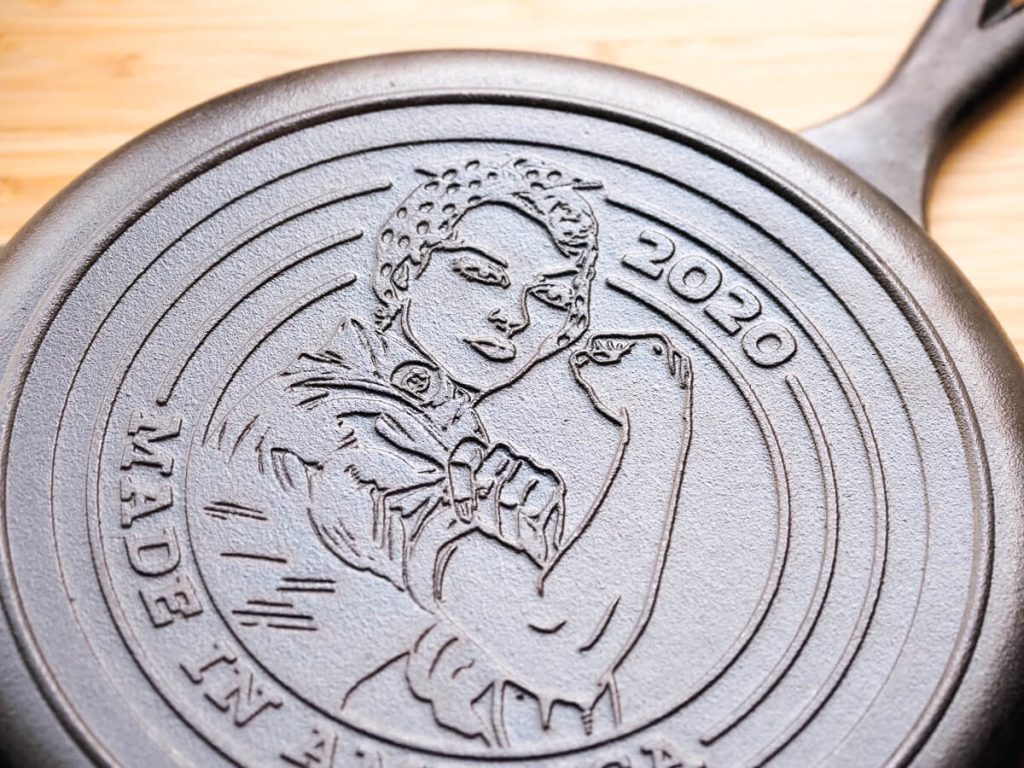
I’m writing this for a pound of meat, and it’s all very adjustable. Use more or less garlic, use queso fresco or your favorite cheddar — I think feta would be tasty, too. This setup will serve 4-6 people.
What You Need
- 1 pound of meat (any ungulate will do)
- Frying pan, the thicker the better
- Corn tortillas
- Green cabbage
- 1 bulb garlic (or just a few cloves, depending on your taste)
- 1/2 pound queso fresco
- Cilantro
- Limes
- Salt (probably at least 2 Tablespoons)
- 2 Tablespoons vegetable oil
- 4 Tablespoons chili powder
- 2 Tablespoons cumin
- 2 Tablespoons Red wine vinegar
- 1/3 cup water
- Lemonade for drinking
What You Do
The meat comes first and last. Thaw your meat from the freezer in the fridge, then you need to salt it and get it to room temperature. You can salt it as soon as it’s thawed, so if you put it in the fridge on Saturday and its thawed by Monday, you can salt it on Monday and cook it on Tuesday. You can also salt it the same day.
Pat the meat dry with a paper towel and cover all surfaces of the meat with plenty of salt. Not so it’s a pure white hunk, but enough that it’s visible and well covered. The salt will both tenderize the meat and allow it to become juicier. Don’t put it back in the container that it thawed in if there is blood in it. Put it in a dry container one layer deep.
Pull it from the fridge about an hour before you want to cook it so it can warm up to about room temperature. This will help it cook evenly and quickly.
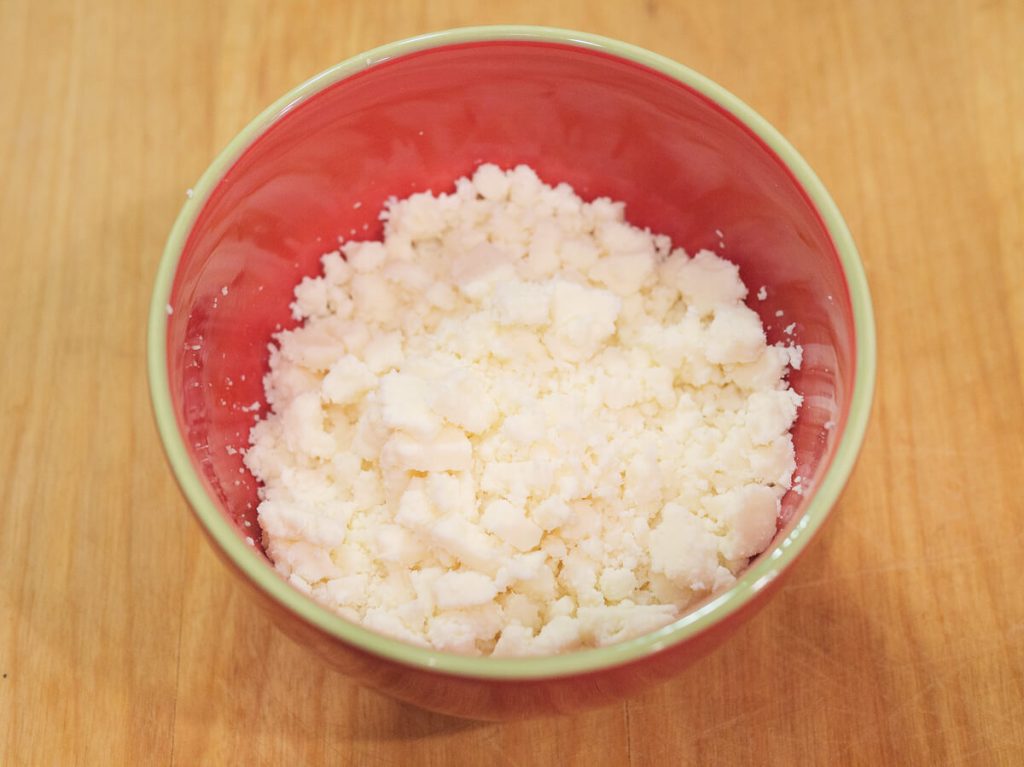
While the meat is sitting, prep the cabbage, garlic, cilantro, lime, and cheese. Pull out the cheese at the same time as the meat so it can warm to room temperature, too. Queso fresco is a lot like cheese curds, so it’ll be more flavorful and squeakier when it’s warmer. Slice the cheese and then crumble it for serving.

I don’t about you, but my mom always cut a head of cabbage in half to begin shredding it. But, if you’re not going to eat the whole head, then it starts going brown on the cut surface. Instead, pull off only the leaves you want to eat, and leave the head intact. Stack the leaves together, roll them up tightly and cut it up the middle and then across in thin slices. It’ll end up nicely shredded.
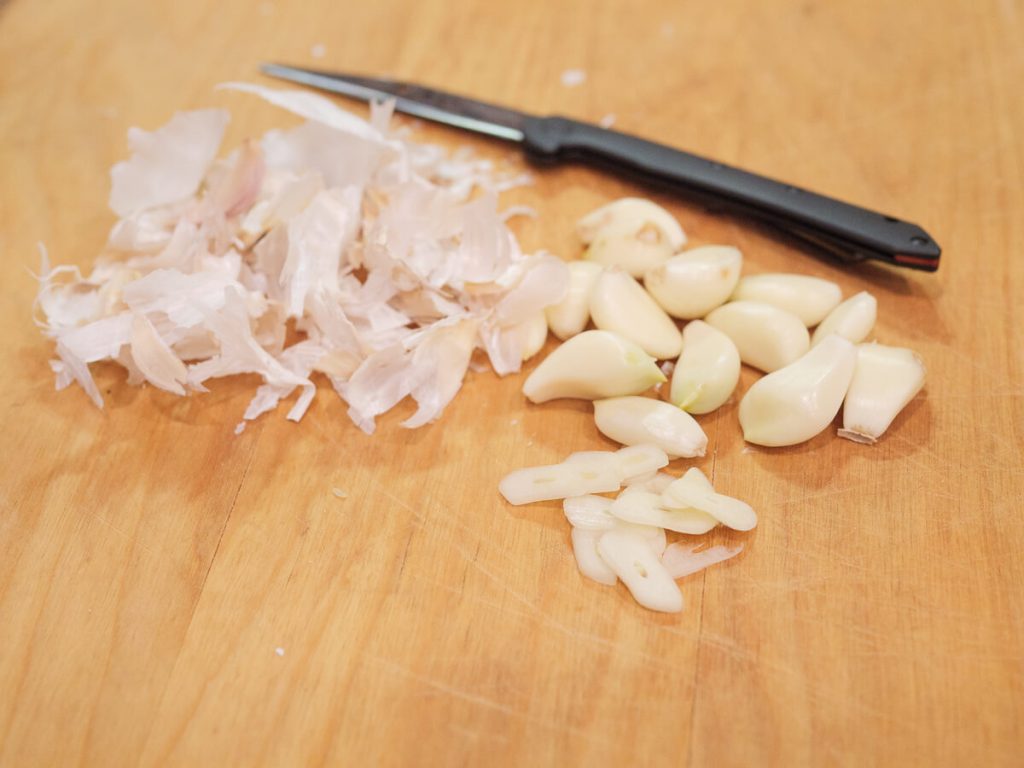
You can slice or press the garlic, but I just got Sandrin Knives’ new TCK 2.0, which is an incredibly sharp tungsten carbide knife so I’m slicing everything with it. It can make paper-thin slices of that garlic, but you don’t need to go that thin, and if you have a garlic press that’ll work well.
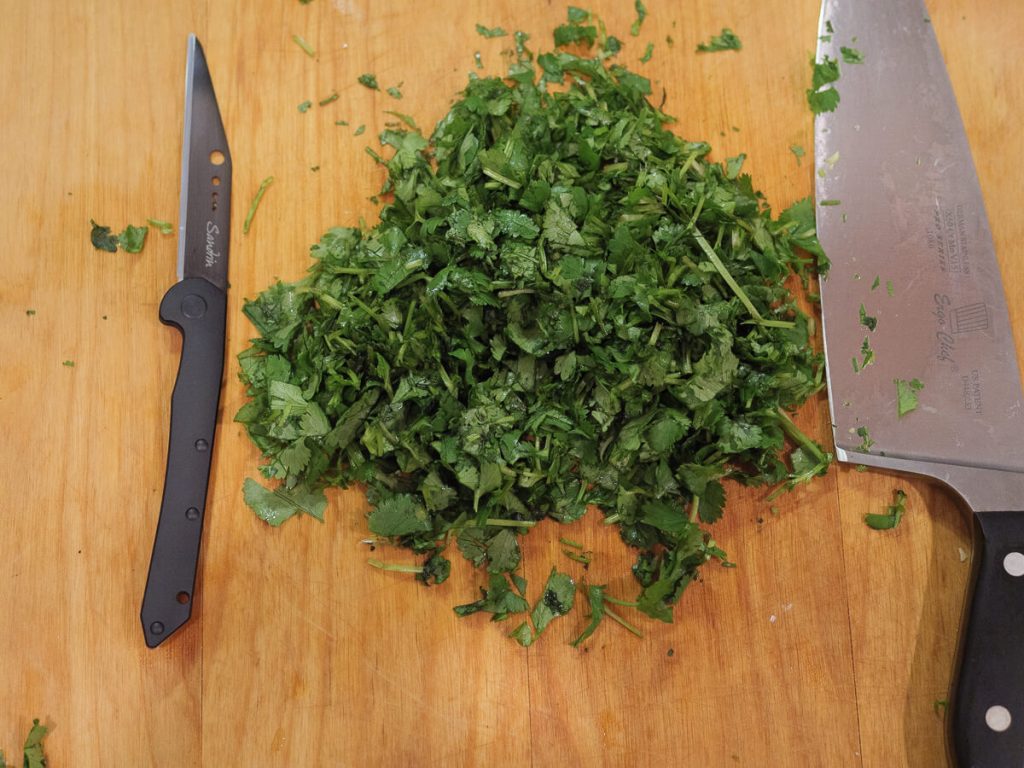
Wash the cilantro and chop it well enough that all the stems are short and bite-sized. No, I didn’t use the TCK 2.0 to chop the cilantro because it’s not the ideal blade shape, but it really makes me want Sandrin’s new line of tungsten carbide kitchen knives.
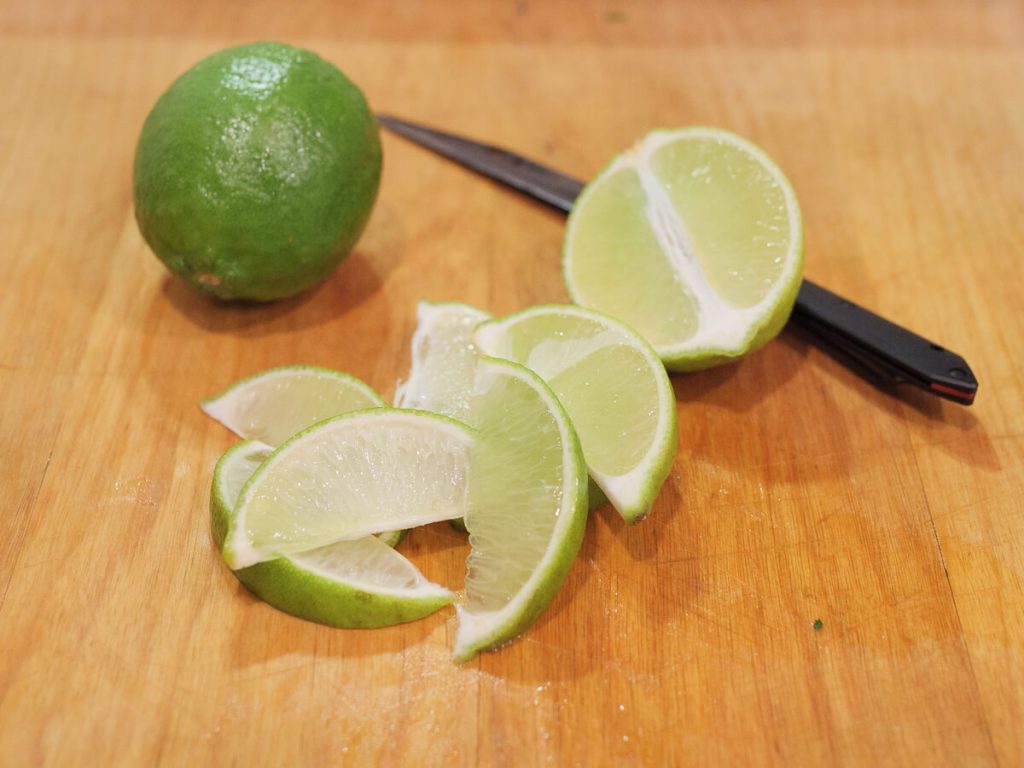
Slice the limes — these are for individuals to squeeze on their tacos.
Now it’s time to slice the meat. The key thing is to cut it thin and small. It’s annoying to have meat that is too large in tacos because it comes apart when you eat it. I’d make the pieces not more than 1″ square and try for a true 1/4″ thin, sliced across the grain. The salt and the thin slices are what help this meat feel tender in your mouth. Remove as much silver skin and tissue as possible.
In a bowl, coat the meat with about 2 tablespoons of oil. The oil adds a little fat and helps the chili powder stick to the meat. Just mix the meat and oil around until all the meat is coated.
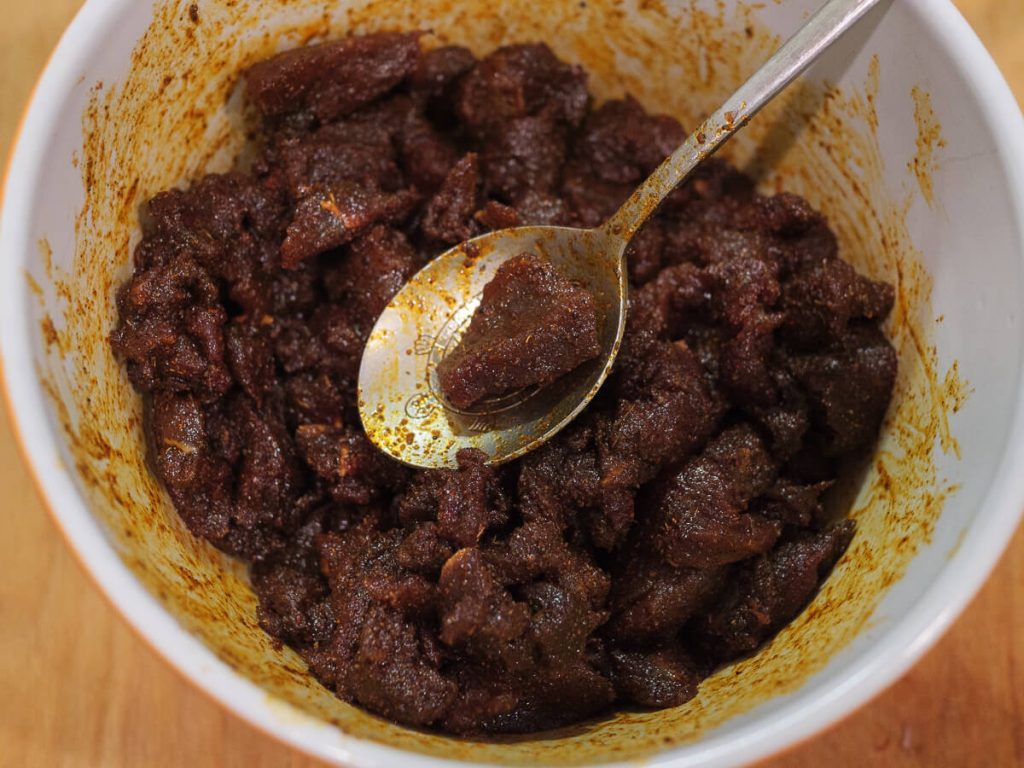
Mix the chili powder and cumin together in a bowl, then add to the meat and mix until the meat is evenly coated. This may be more powder than you’ve used before, but it’s awesome. You could even do this earlier and let the meat sit with the spices on it.
It’s important that you have everything else ready before you cook the meat. The meat cooks very quickly and it’s best served hot. Even get the table set and the lemonade mixed before you cook the meat. And remember, it doesn’t matter if you make real lemonade or mix it from a powder: There are few sins as heinous as weak lemonade.

You need to warm your tortillas so they are palatable. You can do this on the stove or in a sandwich press, or even a George Foreman grill. Heat a pan to medium heat and cook them about 1 minute on each side. If you go too long they become tough. You just need to soften them up. Keeping a little oil in the pan helps, too. You may be able to juggle both the tortillas and the meat at the same time, but don’t overcook the meat. Do the tortillas first.

Heat a heavy pan on medium-high heat — pretty dang hot. Don’t put any oil in it until the top edges of the pan are hot, and then only a very little oil. While the pan is heating, put a plate with water on it in the microwave to heat. Dump off the water and use this plate to keep the meat warm after it’s cooked.
Quickly sauté the garlic, and don’t let it burn. Sauté about 1 minute then add half the meat.
Don’t put all the meat in the pan at once or it’ll steam too much and boil, making it tough. Cook about half at a time. Put it in the pan and push it around until it’s all touching the pan, then don’t move it — you need it to start to stick and truly brown. After about a minute, flip it to the other side to brown briefly. You sliced it thin, so it really shouldn’t take long. Put it on the hot plate and taste a piece. If it’s too well cooked, do the next batch for less time. Medium rare would be ideal for tenderness, so really don’t let it go too long. Cover the meat on the plate.
Add the rest of the meat and brown it and let it stand on the hot plate while you deglaze the pan.

Use about 1/3 cup of water and 2 tablespoons red wine vinegar to deglaze the pan and make a little sauce to keep the meat hot and moist. Just scrape the pan with a wooden spoon and let it boil down until it’s pretty thick. It’ll make just a few tablespoons worth of liquid, but it’s a nice addition to the meat.

Serve the meat and tortillas hot, sprinkled with cheese, cabbage, and cilantro, and drizzle with lime juice. Maybe drop a lime in the lemonade. Tacos are a sure favorite and a much better use for your hard-earned wild game than grinding it with pork fat.
Future recipes will offer more alternatives to grinding your tougher cuts of meat.
